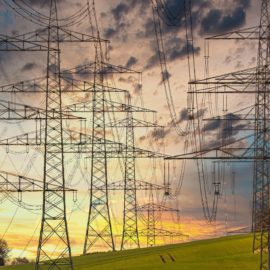Mark Ballard starts out with a dichotomy.
Without a doubt, Louisiana is a fossil fuels state whose economy is dependent on the royalties, taxes — an estimated $373 million this year — and the 48,000 jobs oil and gas creates. Louisiana also is on the front line of global warming. A football field of wetlands vanishes into Gulf of Mexico waters every 100 minutes.
The advocate
This Op Ed also concerns the meeting of the Natural Resources Committee that all people spoke with one voice. Also the Attorney General, Jeff Landry, plans to file a law suit.
This was a Biden campaign promise — one from which he is unlikely to back away. “We’ve already waited too long to deal with this climate crisis,” Biden said as he signed executive orders less than a week after taking office. The U.S. Geological Survey reports that extraction and consumption of oil, gas and coal from federal lands and waters account for about a quarter of the nation’s total carbon dioxide emissions. Greenhouse gases, like carbon dioxide, trap heat and raise the Earth’s average temperature. Biden’s orders use the federal government to reduce planet-warming emissions. It also reverses the Trump administration’s policies that limited environmental regulations and played down mankind’s role in global warming.
Ballard notes that what the President did was a pause, not a ban – not yet. Congressman Graves noted that oil is important and that renewables currently only provide a small amount of energy so that oil will be around for the foreseeable future. Yet, eventually Louisiana will have to alter their business plans. Mr. Ballard then went to spokesmen for renewable resources, spokesmen who were not invited to the committee meeting.
Had he been invited to speak, Darryl Malek-Wiley, of the Sierra Club’s Environmental Justice and Community Partnership Program, said he would have given the hearing an alternative scenario to consider. “For over 100 years, Louisiana has relied on oil and gas. It’s time to shift away from that,” Malek-Wiley said. “It’s a dying industry.” Nations around the world are rebuilding their technology to rely more on renewable sources of energy than on fossil fuels. General Motors, for instance, recently announced that it would build only electric vehicles by 2035, he noted. Louisiana lawmakers should be looking at incentives to expand those energy businesses rather than doubling down on oil and gas companies, he added. A dockyard in Morgan City is building vessels that can maintain offshore windmills; a New Orleans firm is manufacturing paddles for windmills that it sells to other states. Investments in making Louisiana homes less drafty and more efficiently keep heating and cooling from being wasted would create jobs, lower reliance on energy — all while helping people stay more comfortable, Malek-Wiley said.
The Sierra Club is not alone.
Marylee M. Orr, head of the Louisiana Environmental Action Network, thought the president’s pause creates an opportunity for Louisiana to slow down and assess the state’s future. “Louisiana is a prime example of not really thinking things through, determining where we are, how it affects us and where we are the most vulnerable,” Orr would have told the gathering. “Biden didn’t say stop, he said pause.” The state is literally littered with bad decisions from the past, she said. About 4,000 abandoned wells dot the state that need to be plugged. Louisiana’s workforce is uniquely qualified for that task and the effort would create jobs while cleaning the environment and protecting the public’s health. As a member of the governor’s Climate Task Force, Orr has suggested several policies, such as coordinating emission reduction targets and permitting.
What this shows is that all voices need to be heard. The state needs to look to the future and recognize the reality of the situation.




